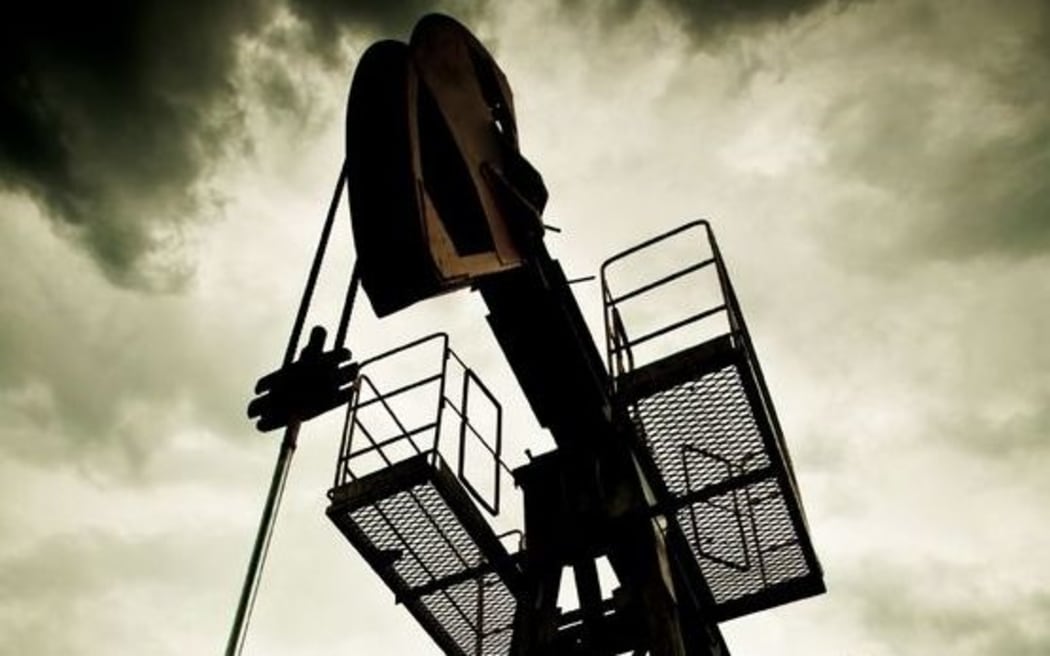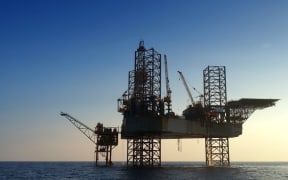Exploratory drilling for oil and gas has ground to a halt in New Zealand amid low oil prices.

In 2011 52 wells were drilled in Taranaki. Photo: 123RF
When Todd Energy and its partners Cue Energy Resources abandoned the wellsite Te Kiri North-1 in coastal Taranaki last month, it meant there was no longer any exploratory drilling for oil and gas taking place in the region or the rest of New Zealand.
In 2013, 32 wells were drilled in Taranaki alone - 18 of those exploratory wells - and at its peak in 2011, 52 wells were drilled in the province.
Oil and gas analyst with Woodward Partners John Kidd said with oil prices at 10-year lows - of less than $US30 a barrel - many companies were unable to finance exploration.
"Cashflow is under severe pressure at the moment. Oil prices are really seeing the sector go through a quite extended period of revenue, and therefore earnings, and therefore cashflow decline.
"And that does severely effect their ability to be able to undertake their work programmes in Taranaki and elsewhere in New Zealand."
As recently as 2014 oil fetched $US110 a barrel, but Mr Kidd said he did not see those prices returning any time soon.
"There's a general sense in the market that the recovery will be one of longer rather than shorter duration so rather than weeks or months it maybe a case of quarters or years before we see oil prices recover to ... I call it more sensible pricing but really it's a case of being at a price level which enables new production to be able to be justified."
Petroleum Exploration and Production Association chief executive Cameron Madgwick said deferring drilling programmes made sound economic sense in the current climate.
"When the economic circumstances are as they are at the moment, then participants in the exploration sector have to act in a financially prudent manner and when you consider an exploratory well could cost in excess of $100 million to drill that's not probably not financially prudent at the moment."
Mr Madgwick said the industry was resilient and would continue with background work while it waited for oil prices to turn.
"In these sorts of times a bit more time is taken to perhaps look more closely at the geology and do more of the scientific work that's required to firm up the decision around whether you would drill or not."
An example of this is Shell Todd Oil Services' $10 million seismic survey at Kapuni which aims to update information on the field which has been producing gas since 1969.
The same company and its partners are also just completing a $70 million maintenance programme at their Pohukura rig, offshore from Waitara, and about to begin a similar project at its onshore production station.
Austrian firm OMV is also currently undertaking a $60 million upgrade of the mooring system for its floating production platform, the Raroa, at the Maari oil field off the South Taranaki coast.
And while these projects are providing valuable work for the companies which service the oil industry they are still being hurt by the downturn.
In 2013 the oil industry in New Zealand directly employed 4600 people, 3900 of those in Taranaki, but Graham Wells, the chairman of the Engineering Taranaki Consortium which represents 11 engineering firms in the province, said that was not the case today.
"There's less activity around at the moment than there was two years ago and so the workforce involved in oil and gas work has reduced. Probably at this stage down 20 to 30 percent."
Mr Wells said Taranaki engineering firms had seen downturns before and had become more flexible as a result.
He said not even the prospect of Shell exiting New Zealand after more than 100 years would knock them off their stride.
"If Shell was to look at selling their assets there would still be a requirement for those facilities to be maintained and kept running by whoever is the new owner."
Shell, which employs 400 people in New Zealand, announced in December last year that its interests here were under review.
Its country chairman Rob Jager told RNZ at the time that options ranged from "business as usual to a full country exit" or anything in between.



